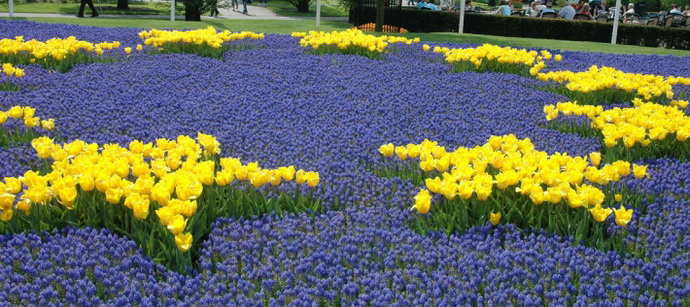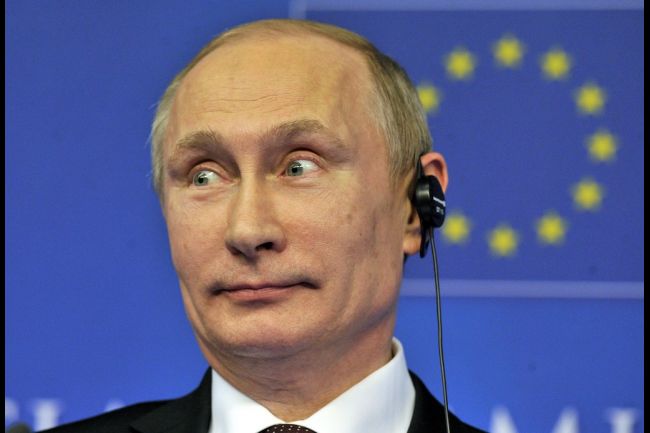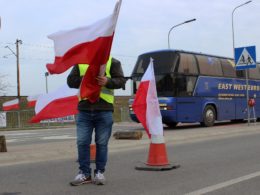Events of the recent years remind us that the Schuman Declaration of 9 May 1950 was primarily about preventing yet another war on the continent. The founding fathers of today’s EU saw economic integration only as a tool to achieve this strategic goal. The article limits the horizon of the future by 2030. By this time, two electoral cycles will take place both in the EU and in Ukraine, the EU is likely to implement changes that are currently being discussed, while Ukraine will complete its commitments under the Association Agreement.
The major task for the coming decade is to change how Ukraine is perceived across the European continent. Ukraine should move away from being regarded as a post-Soviet state, Ukraine should be viewed as a European country. Below we will elaborate on the three blocks – security, integration and people-to-people contacts. That, we believe, will enable such a perceptional transition.
Carrying out of the so-called “Russia first” policy at the expense of legitimate security interests of eastern European countries, has enabled a number of frozen and hot conflicts: Transnistria in Moldova, Karabakh crisis between Armenia and Azerbaijan, Abkhazia and South Ossetia in Georgia and finally – the illegal annexation of Crimea followed by the ongoing conflict in eastern Ukraine.
All these crises and foremost the annexation of Crimea have undermined the existing security system established in 1975 by the Final Act of the Conference on Security and Cooperation in Europe. The keys to resolving the above-mentioned conflicts lie in the Kremlin and depend on Russian willingness to abandon its “spheres of interests.”
The EU’s policy towards Russia can either speed up the resolution of the conflicts in Eastern Europe or, on the contrary, prolong them in time if not provoke an outbreak of new hot spots. The former requires a common, joint and precise EU’s Russia policy, which is well coordinated with NATO allies.
For the latter, however, it’s enough to carry out the “business as usual” approach that inevitably trades off European security interests to national or personal economic preferences in relations with Russia. Thus, protection of Eastern European countries’ security interests saves the face of united Europe. After Russia gives up its aggressive revisionist policy, Kyiv or Crimea (following its return to Ukraine) may host a new pan-European security conference to formalize a European security architecture based on principles of international law.
A differentiated level of integration between the Member States within the EU should also correspond with the similarly differentiated approach to European partner countries depending on their level of ambitions. There are already various models of interaction between Brussels and non-EU European states: European Economic Area, EU Customs Union, bilateral acquis with Switzerland. This list may soon be extended by a new treaty with the UK.
The EU policy towards Eastern Partnership countries should take into account experience of the above-mentioned models and match with ambitious of every respective country.
Kyiv has declared its European ambitious numerous time. Understanding that currently, EU membership perspective is beyond the foreseeable future, we propose to focus on lobbying Ukraine’s participation in various EU policies and initiatives.
This may include European Energy Union, integration in the area of new technologies, infrastructure projects, an extension of cohesion policy beyond EU borders, development of pan-European social standards, ever-closer integration in the areas of research and education, cooperation between civilian and military security sectors of European partner countries and relevant EU initiatives, etc. This is of course not an exhaustive list, which may further include the Schengen Agreement. Obviously, such an ambitious agenda must include the same ambitious conditions based on European values.
Unfortunately, these are not isolated cases, when people from Western Europe still view Ukraine and Eastern European countries as part of the Russian area. For many years, EU citizens are able to enter Ukraine without any bureaucratic barriers. This together with the recent introduction of a visa-free regime for Ukrainians has considerably strengthened people-to-people contacts.
Thanks to European education projects, the number of young Ukrainians who studied in the EU countries is growing every year. Through joint activities, both Ukrainians and their fellow European partners discover how much we have in common.
This experience is also the best anchor of Ukraine’s European integration regardless of who exactly is in power at any given moment of time. In the coming decade, we see an even bigger amount of exchange programs, new communication platforms, forums, and events bringing people-to-people communication to truly ambitious level.
One of such initiative could become the establishment of a “House of Europe” in Kyiv, a platform aimed at generating and exchanging ideas, spreading knowledge, establishing contacts, and ultimately increasing continuous integration of Ukrainian culture under a common European roof.
Looking at Europe in 2030, we see the continent where security of every nation is preserved on the ground of international law, today’s dividing lines including those existing in our minds are being gradually replaced by bridges of cooperation.
Initiative group of the College of Europe Alumni Association-Regional group in Ukraine:
Volodymyr Hushuley, Hanna Bazilo, Robert Khorolskyy, Kateryna Shalayeva
The College of Europe Alumni Association-Regional group in Ukraine was established in November 2012 and brings together Ukrainian and foreign experts in politics, law, economy and diplomacy of the European Union. Its mission is to bridge Ukraine and the EU. The community’s page in Facebook is available at: https://www.facebook.com/CoE.Ukraine.alumni/







